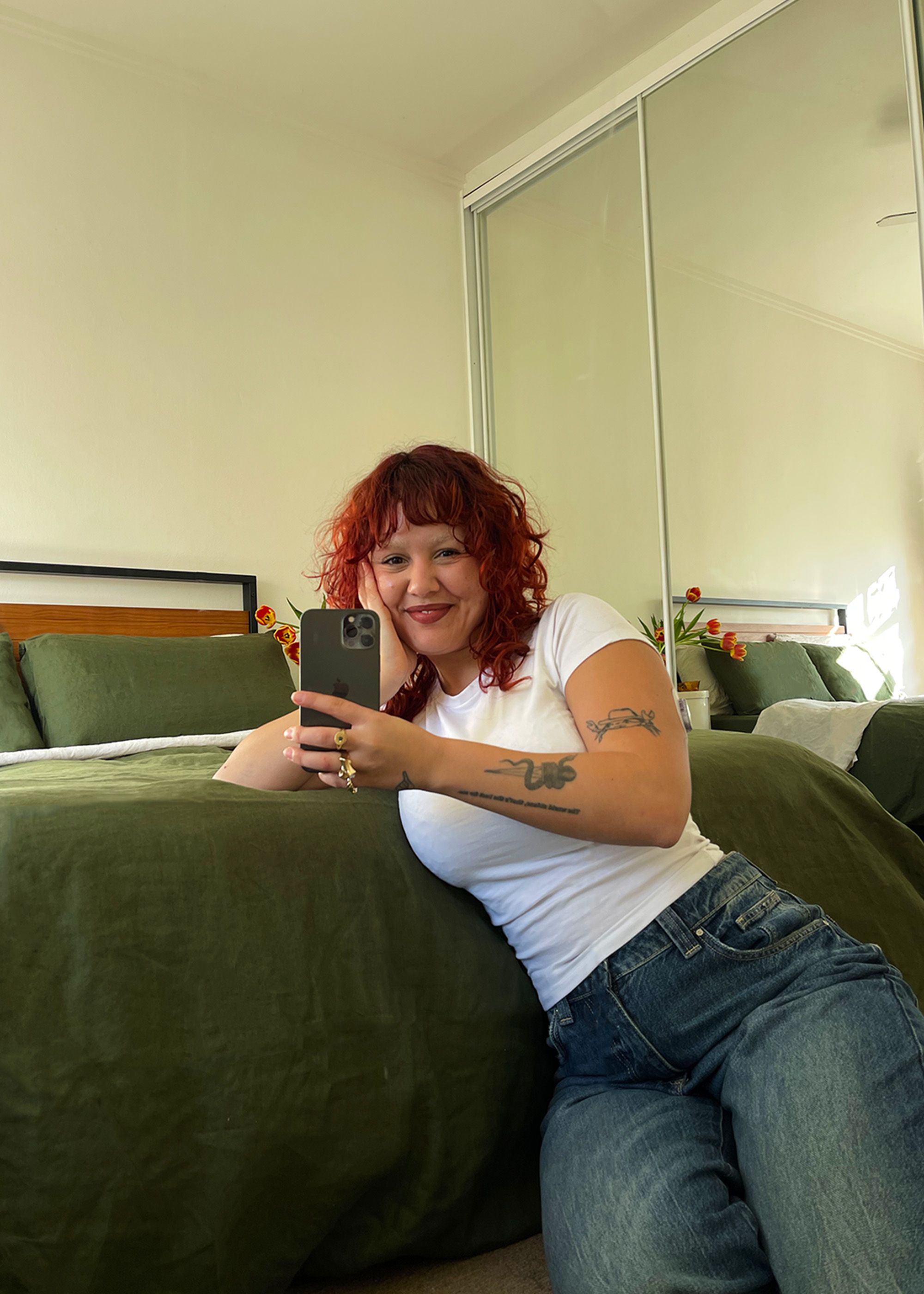
"My Chronic Illness Stole My Sleep – Here's How I Got It Back"
After being diagnosed with type 1 diabetes, I had to completely change my bedtime routine.
How do you get your sleep back after being diagnosed with a chronic illness? Sydney-based disability advocate and writer Carmen Azzopardi, otherwise known as @zigs_mom on the Internet, shares her experience.
When I was diagnosed with type 1 diabetes just five days after my 25th birthday, naturally what felt like a never-ending stream of questions flooded my mind; what does this mean for me moving forward? How will my life change? And my personal favourite; is this because I ate too much birthday cake? (No, seriously, this was a genuine concern of mine).
Although I didn’t know much about the disease when I was diagnosed, I knew enough to realise that my life would probably never be the same. I spent hours ruminating on the adjustments I’d have to make to my routine, considering the overwhelming loss that comes from living with a chronic illness. I heavily mourned my previously able body while trying to wrap my head around things like new terminology, injections, insulin and forever fluctuating blood glucose levels. On some level I knew that my diagnosis would impact every inch of my daily life, but I never realised how heavily it would impact my sleep.
The first few months spent adjusting to my diagnosis were extremely difficult, made worse by the fact that I was barely sleeping. I was dealing with intense anxiety about overnight hypoglycemic episodes which made it hard for me to relax enough to rest.
This anxiety, coupled with post-diagnosis PTSD, meant that unfortunately, I got pretty accustomed to sleeping for only a few hours each night. If you’ve ever faced something similar, or perhaps you’ve had insomnia, you would know that sleep deprivation is rough: it severely impairs your brain function and over time can cause serious physical and mental health issues that are hard to come back from. To put it colloquially? Not sleeping really suuuuuuucks.
As someone who slept relatively well pre-diagnosis, I was shocked when my lack of sleep started to take its toll; my anxiety felt like it tripled, I had the shakes almost daily and I lost both my appetite and my ability to focus on, quite literally, anything.
When I did eventually fall asleep, I’d be consistently plagued with sleep paralysis, waking up more exhausted than when I went to bed. In a desperate bid to regain some form of quality sleep, I started implementing changes to my bedtime routine. After trying what felt like everything and anything, here’s what really stuck.
Investing in comfortable bedding
I’m a Taurus, so it goes without saying that home aesthetics have always been extremely important to me. On my quest to make my bed more appealing but also more functional, I knew that I needed quality bedding that was practical but also aesthetically pleasing, thus discovering Bed Threads. As a Type 1 diabetic my temperature fluctuates a million times throughout the night which is why bedding made from 100% flax linen is so important to me. Flax linen helps regulate your body temperature while you sleep, keeping you cool in the heat and cosy in the cold. After promptly purchasing a Bed Threads set in 2020, I quickly realised I could never go back to my non-linen lifestyle. Over the past four years, I’ve purchased a further two sets, recommending Bed Threads to anyone who’ll listen and I’ve even gifted my sister her own Bed Threads set after she gave birth recently (she’s now a Bed Threads convert, too!).
Struggling with sleep is a deeply personal issue that can feel, at times, all encompassing. Although the above changes, along with therapy, daily exercise and restricting my caffeine intake, have helped me on my journey so far, there are times when I still struggle with bouts of disrupted sleep. As a chronically ill person I know that this struggle goes hand in hand with my diagnosis however, if you’re feeling similarly, along with my suggestions above, I also cannot stress enough the importance of finding a support system that works for you; a therapist you can confide in, a medical expert who can assist.
For more from Carmen, follow her @zigs_mom
This article is intended for informational purposes only and is not a substitute for individualised health advice. If you are concerned about your health and wellbeing, please speak to your GP, who will advise on the correct treatment plan. You can also call Lifeline 24/7 for mental health support on 13 11 14.
Create a Soothing Sleep Space
Enjoyed This?
Discover more wellness articles.





























